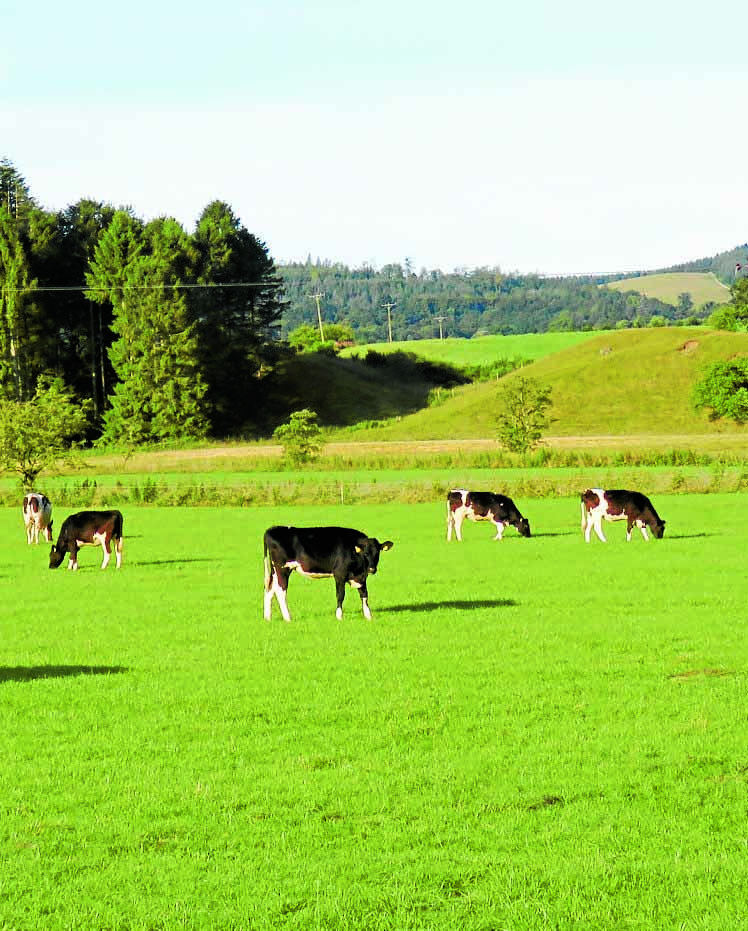FURY has erupted across the region following last week’s Westminster Budget, with its “raid” on farming.
Chancellor Rachel Reeves announced changes to Agricultural Property Relief, bringing in a cap of £1 million on the relief, and then a 20 per cent tax will be paid on the value over £1 million.
Dumfriesshire MP David Mundell said: “This is a very heavy blow to the farming industry and risks undermining the tradition of family farms being passed on to the next generation, along with the lifetime of experience which has been built up.
“The Chancellor’s tax raid on farming will cause the break-up of family farms, undermine the UK’s ability to meet environmental commitments, and presents a direct challenge to the future of tenant farming where larger let estates may now have to consider disposals to remain within new property relief limits.
“It shows we now have a government which fundamentally doesn’t understand the realities of the rural economy here in Dumfries and Galloway and across the rest of the country, and apparently doesn’t have much respect for it either.”
And he urged people locally to sign a campaign petition at: stopthefarmtax.com to send a message to the UK Government.
The National Farmers Union Scotland (NFUS) is organising a rally outside Holyrood for November 28 and are calling on members and supporters to take part, including from Dumfries and Galloway.
NFUS president Martin Kennedy said: “We are organising a rally to which we want all our members to attend to send a clear message to the Scottish Parliament and Government about the importance of securing future, multi-annual, ring-fenced funding for Scottish agriculture.
“Our rally will highlight all that farmers and crofters deliver, including high-quality food production, climate and nature restoration, and thriving rural communities.”
Meanwhile, Cummertrees farmer Stewart Wyllie, who is the Dumfries and Galloway NFU branch chairman, has been weighing up all sides of the package.
He said: “There are some positives, i.e. the freeze on fuel duty. Some negatives, e.g. the change to APR and inheritance tax and employers’ national insurance; along with some undecideds, i.e. the increased budget to Scotland means a potential uplift in the agricultural budget but it is not ringfenced so in theory the Scottish Government could spend it on anything.
“The big take away overall is to encourage all farmers to speak to their accountants. There’s still plenty can be done to mitigate the worst case scenarios for inheritance tax.”
Also joining the backlash is Dumfries and Galloway farmer, author and activist Jamie Blackett.
He is the sixth generation of his family to farm at Arbigland and described the Budget as “vindictive” and said Labour doesn’t understand the countryside.
Mr Blackett said: “Rachel Reeves’ Budget has taken the war on the countryside to a whole new level.
“She probably hasn’t worked out the consequences of her astonishing removal of relief from inheritance tax on agricultural land, which could at a stroke spell the end of the family working farm.
“The truth is that those on family farms work harder than in almost any other industry – for pitiful wages. And they will be clobbered by the new policy.”
He added: “Make no mistake, the changes in inheritance tax rules on farming businesses could crucify thousands of them.”
Mr Blackett believes the new cap will particularly impact small dairy farms of about 200 acres which include a farmhouse, workers’ cottage and sheds.
And he warned there will be a knock-on impact on rural economies, with less money to spend on professionals like tree surgeons and wallers.
“Family farms now face unfair competition from farms owned by institutions such as the National Trust, RSPB or the Crown Estate. “Corporate landlords don’t have the cost of a death in the family every generation causing either a massive tax bill or increased costs of tax planning and life insurance. It has created a two-tier situation.
“The family farm tax is likely to be counter-productive as it will feed into higher costs and ultimately into food price inflation,” he added.
























